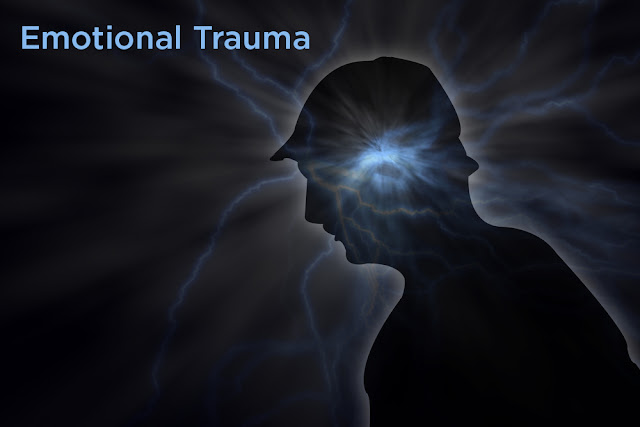Understanding Trauma
Emotional or psychological trauma is an injury or damage to the spirit. It usually happens after going through an extraordinarily distressing or frightening event in one's life. It may lead to challenges in coping or functioning normally after the event has taken place. While every person who experiences any emotional trauma or traumatic event reacts differently, many others recover well. Usually, these people have a proper support system, and their problems do not linger on for a long time.
Usually, traumatic experiences involve events that are life-threatening. Any situation which leaves individual feeling alone and overwhelmed can also be traumatic. Emotional trauma symptoms don't need to have a physical effect. It is, therefore, necessary to recall that it is not the subjective event alone which determines how traumatic the situation is, but the subjective emotional encounter of the event as well leaves one feeling depressed. Usually, the more helplessness and terror one feels, the more probable it is that a person would be traumatised.
Symptoms and signs of emotional & psychological trauma
Many people go through strong emotional or physical reactions immediately after they go through any traumatic event. For most people, their feelings scatter for a few days or even weeks or months. But, for some people, the symptoms of trauma may be extremely severe and can also last longer.
Some of the symptoms may include the following:
Behavioral:
1. Avoiding places or activities that bring back the memories of the incident
2. Social withdrawal and isolation
3. Missing interest in activities that they enjoyed previously.
Cognitive:
1. Disturbing thoughts of the episode occurred out of the blue
2. Visual images of the event
3. Nightmares
4. Loss of memory and concentration abilities
5. Confusion
6. Disorientation
7. Mood swings
Psychological:
1. Too much fear
2. Compulsive and Obsessive Behavior
3. Detached from emotions and other people
4. Depression
5. Emotional numbing
6. Shame
7. Disbelief
8. Emotional shock
9. Anger
10. Irritability
11. Panic attacks
12. Anxiety
Physical:
1. Easily astonished
2. Extreme exhaustion and fatigue
3. Tachycardia
4. Insomnia
5. Edginess
6. Chronic muscle patterns
7. Changes in sleeping and eating patterns
8. Always on the search for indications of potential danger by being extremely alert
9. Sexual dysfunction
10. Vague complaints of aches and pains throughout the body
Conclusion
Having said that about Emotional trauma symptoms, it is also a fact that many people can go for years without getting any treatment. Eventually, as a period grows, their world also becomes smaller. If in case the emotional trauma goes untreated it can get devastating. It would then infiltrate every aspect of one’s life. Therefore, it is essential to have it treated as early as possible.






